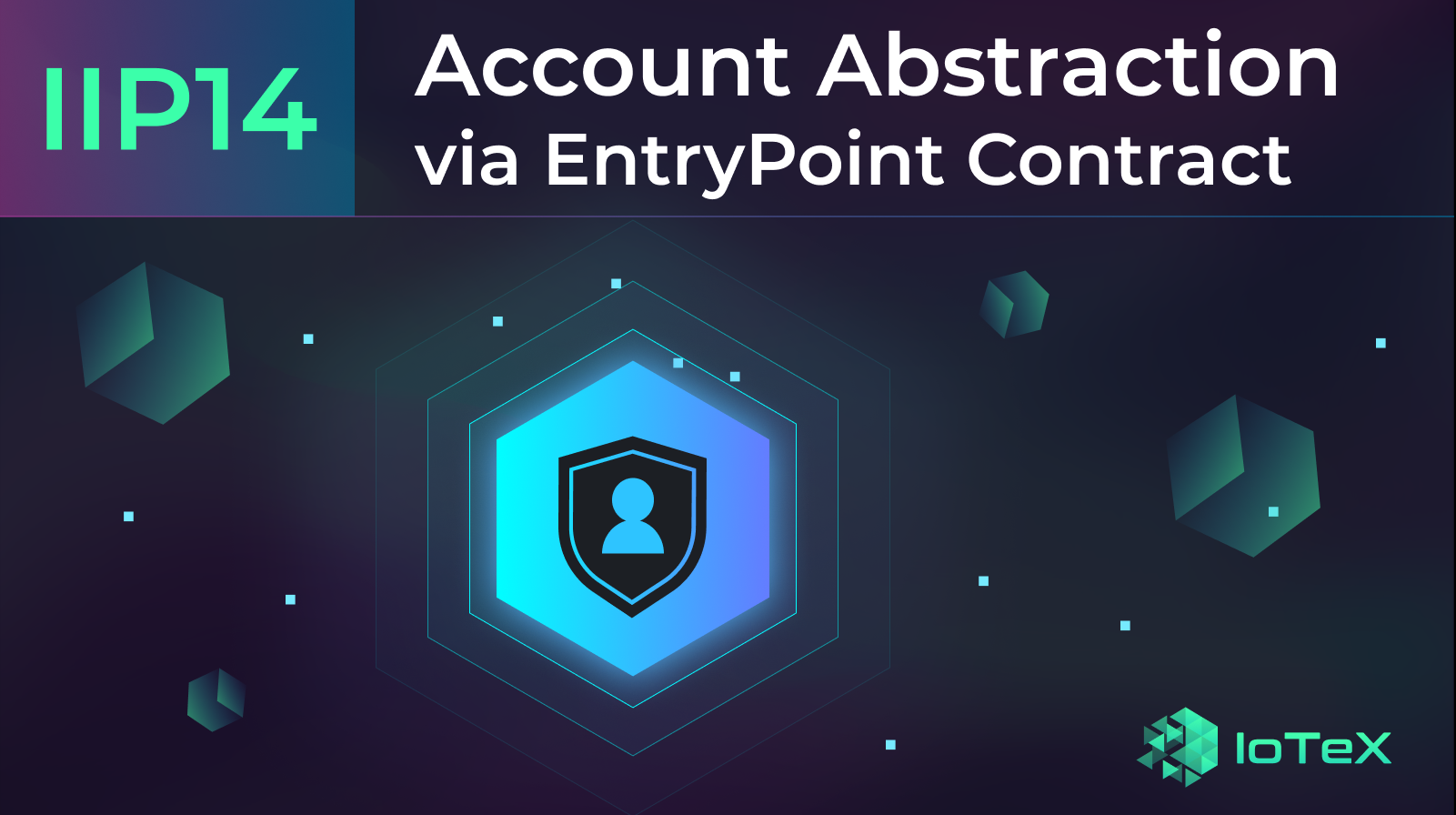IIP-14 Proposes User-Friendly Web3 Onboarding

Across the growing industry, there’s an increasing demand for more user-friendly dApps that make Web3 more accessible.
Account Abstraction has been a hot topic in the Web3 community for several years, but without a solid foundation, it simply couldn’t work.
Account Abstraction is a powerful feature that can make IoTeX a more user-friendly and safe platform by improving ease of use while retaining optimal security—a significant design improvement over externally owned accounts (EOAs).
By breaking down technical barriers (like managing private keys and wallet addresses), Account Abstraction enables users to interact more intuitively and seamlessly with the IoTeX ecosystem.
In this post, we’ll explore the benefits of Account Abstraction and how it can greatly enhance your IoTeX experience, whether you’re a builder or an early adopter.
Community voting is now open for IIP-14. Cast your vote today.
R3al World Motivation
Account Abstraction takes Web3 “back to the basics,” away from the complex inner workings of technical concepts. It focuses on how the user experiences the technology; how to make it useful and usable.
For many people, storing a private key safely and keeping track of multiple wallet addresses is burdensome. Even OG builders in the space have fallen victim to these complexities.
Web3 must adopt new design approaches and alternatives to externally owned accounts to onboard the masses.
Keep it Simple
Account Abstraction enables features that mainstream technology has developed since the term “user experience” was coined in the 1990s, and Apple began its rise to success.
A standard for Account Abstraction signals a maturing industry—an awareness that Web3 users want simplicity, an intuitive interface that doesn’t complicate life in the digital-first era.
As a leading DePIN platform, IoTeX aims to be the gateway to onboarding the next generation of Web3 users. And to achieve this, we aim to keep the IoTeX platform ahead of the curve.
A Practical Approach
There have been multiple approaches to Account Abstraction over the years, e.g., Ethereum Improvement Proposal 86 (EIP-86) and EIP-2938.
These weren't practical to implement since they required consensus-layer changes—exposing the blockchain to protocol attack vectors.
A new standard, EIP-4337, takes an advanced approach to Account Abstraction that relies on higher-level infrastructure and avoids consensus-layer changes altogether.
For the BUIDLers
By abstracting away the details of account management and asset storage, developers can focus on the logic of their applications, making dApps more efficient and easier to build.
By implementing EntryPoint, a sort of automated “security gate” smart contract, this advancement enables developers to build on a secure, universal standard.
Smarter Wallets, Fewer Headaches
More technically, Account Abstraction aims to abstract as many account properties as possible, including authentication, authorization, replay protection, gas payment, batching & atomicity, etc.
In simpler terms, a smart contract can autonomously interact with crypto accounts and assets—removing the need for users to keep track of wallet addresses and private keys. This feature will be optional, of course.
One potential benefit is that DeFi users can trade different crypto assets without holding each asset in a separate wallet or worrying about the mechanics of the trade execution.
For the Users
Account Abstraction combines the convenience of centralized custody, e.g., Coinbase, with the benefits of (decentralized) self-custody—you retain control over your assets; the smart contract signs the transactions.
Account Abstraction can improve wallet security by enabling smart contracts to manage and secure assets, reducing the risk of user error or malicious attacks.
Traditionally, users have had to manage their private keys and keep them secure to ensure the safety of their funds—a complex and error-prone process, leaving users vulnerable to phishing, malware, and social engineering attacks.
Let’s Talk Benefits
Besides enhancing wallet security, Account Abstraction enables:
- Social recovery, recovering lost or stolen private keys by leveraging the help of trusted friends or family members
- Automatic bill payment & subscriptions, with set spending limits
Overall, it opens up more user-friendly features to come.
Big Picture
Today, IoTeX can securely support a virtually unlimited number of users—addressing the trilemma with groundbreaking Web3 technologies and mechanisms like Roll-DPoS.
With a secure foundation laid, IoTeX is primed to onboard the masses—IIP-14 enables a new layer of user-friendly dApps to be built on IoTeX, making Web3 more accessible.
Account Abstraction simplifies the user experience by enabling smart contracts to handle the complexity of managing different accounts and assets—enabling you to interact with dApps without understanding the underlying technical details of how those applications work.
With IIP-14, smart contracts can manage your accounts and asset transfers, providing a more streamlined and user-friendly IoTeX experience.
Community voting is now open for IIP-14, closing on April 9th. Upon this proposal’s passing, Account Abstraction will be live as soon as IoTeX v1.12.
Cast your vote today and make Web3 history with us.